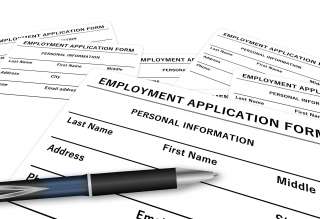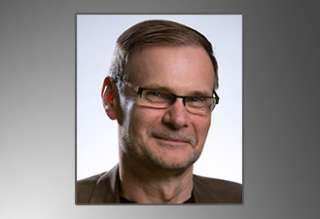SPS Feed
Top Reasons to Join SPS Today!
1. IEEE Signal Processing Magazine
2. Signal Processing Digital Library*
3. Inside Signal Processing Newsletter
4. SPS Resource Center
5. Career advancement & recognition
6. Discounts on conferences and publications
7. Professional networking
8. Communities for students, young professionals, and women
9. Volunteer opportunities
10. Coming soon! PDH/CEU credits
Click here to learn more.
The Latest News, Articles, and Events in Signal Processing

Autonomous Vehicles at the Intersection of Computer Vision, Machine Learning and Human Factors
About the project

Who we are looking for:
An experienced signal processing engineer who is creative, innovative, thrives on technical challenges, and is comfortable merging concepts from different technical disciplines.
Experience (required):
• 5 years of signal processing experience (analysis, modification, and synthesis)
• strong background emphasizing and detecting components in signals
• strong data analysis/data science abilities
• strong programming abilities

The Signal Acquisition, Modeling, Processing and Learning (SAMPL) lab headed by Prof. Yonina Eldar at the Weizmann Institute of Science is recruiting PhD, MSc and post-doctoral students for cutting-edge research applying signal processing and machine learning for communication and radar systems.
Candidates with strong algorithmic background are invited to send their CV and 3 recommendations.

OPTIMA group (https://optima.meduniwien.ac.at) is seeking an exceptionally motivated postdoc to strengthen our interdisciplinary team working on deep learning for medical image analysis. As part of our new initiative on Artificial Intelligence in Retina you will be leading exciting projects, at the interface of computer science and medicine.
June 29 - July 2, 2021
Location: Bristol, UK
June 28-30, 2021
Location: Lille, France
Lecture Date: December 14, 2020 (Online lecture)
Chapter: Singapore
Chapter Chair: Lokesh Bheema Thiagarajan
Topic: Privacy-Preserving Localization and Recognition of Human Activities
Inspired by the recent success of deep neural networks and the recent efforts to develop multi-layer dictionary models, we propose a Deep Analysis dictionary Model (DeepAM) which is optimized to address a specific regression task known as single image super-resolution. Contrary to other multi-layer dictionary models, our architecture contains
This paper is focused on simultaneous target detection and angle estimation with a multichannel phased array radar. Resorting to a linearized expression for the array steering vector around the beam pointing direction, the problem is formulated as a composite binary hypothesis test where the unknowns, under the alternative hypothesis, include the target directional cosines displacements with respect to the array nominal coarse pointing direction.
Decentralized detection is one of the key tasks that a wireless sensor network (WSN) is faced to accomplish. Among several decision criteria, the Rao test is able to cope with an unknown (but parametrically-specified) sensing model, while keeping computational simplicity. To this end, the Rao test is employed in this paper to fuse multivariate data measured by a set of sensor nodes, each observing the target (or the desired) event via a nonlinear mapping function.
Combining diffusion strategies with complementary properties enables enhanced performance when they can be run simultaneously. In this article, we first propose two schemes for the convex combination of two diffusion strategies, namely, the power-normalized scheme and the sign-regressor scheme. Then, we conduct theoretical analysis for one of the schemes, i.e., the power-normalized one.
Recently, saliency detection in a single image and co-saliency detection in multiple images have drawn extensive research interest in the vision and multimedia communities. In this paper, we investigate a new problem of co-saliency detection within a single image, i.e., detecting within-image co-saliency . By identifying common saliency within an image, e.g., highlighting multiple occurrences of an object class with similar appearance, this work can benefit many important applications, such as the detection of objects of interest, more robust object recognition, reduction of information redundancy, and animation synthesis. We propose a new bottom-up method to address this problem.
Low-light image enhancement is important for high-quality image display and other visual applications. However, it is a challenging task as the enhancement is expected to improve the visibility of an image while keeping its visual naturalness. Retinex-based methods have well been recognized as a representative technique for this task, but they still have the following limitations. First, due to less-effective image decomposition or strong imaging noise, various artifacts can still be brought into enhanced results.face of an object. These patches can be applied to multiple regions of the object, thereby making it resistant to various attacks such as cropping, local deformation, local surface degradation, or printing errors.
We propose a new blind watermarking algorithm for 3D printed objects that has applications in metadata embedding, robotic grasping, counterfeit prevention, and crime investigation. Our method can be used on fused deposition modeling (FDM) 3D printers and works by modifying the printed layer thickness on small patches of the surface of an object. These patches can be applied to multiple regions of the object, thereby making it resistant to various attacks such as cropping, local deformation, local surface degradation, or printing errors.
Pages
SPS Social Media
- IEEE SPS Facebook Page https://www.facebook.com/ieeeSPS
- IEEE SPS X Page https://x.com/IEEEsps
- IEEE SPS Instagram Page https://www.instagram.com/ieeesps/?hl=en
- IEEE SPS LinkedIn Page https://www.linkedin.com/company/ieeesps/
- IEEE SPS YouTube Channel https://www.youtube.com/ieeeSPS














